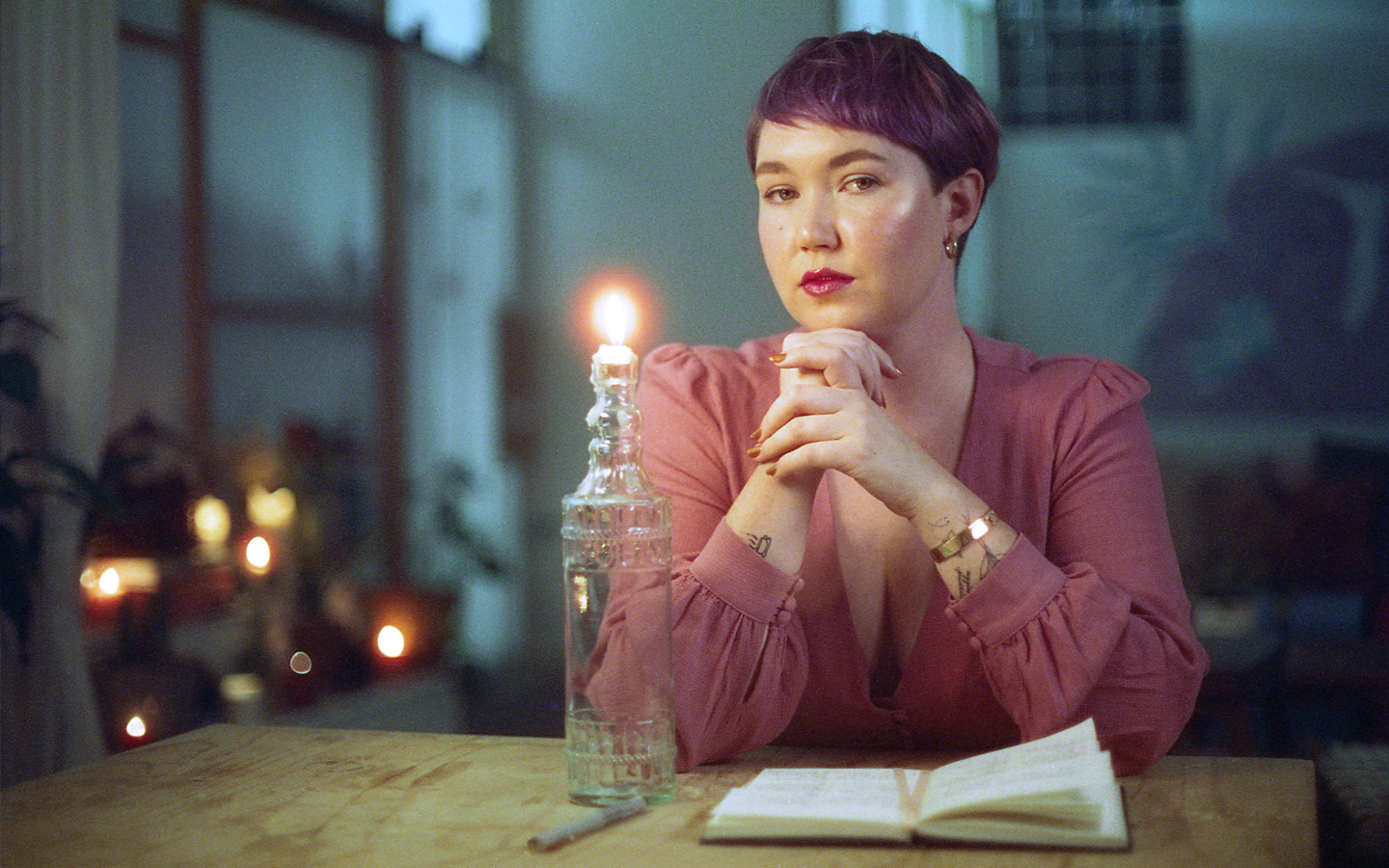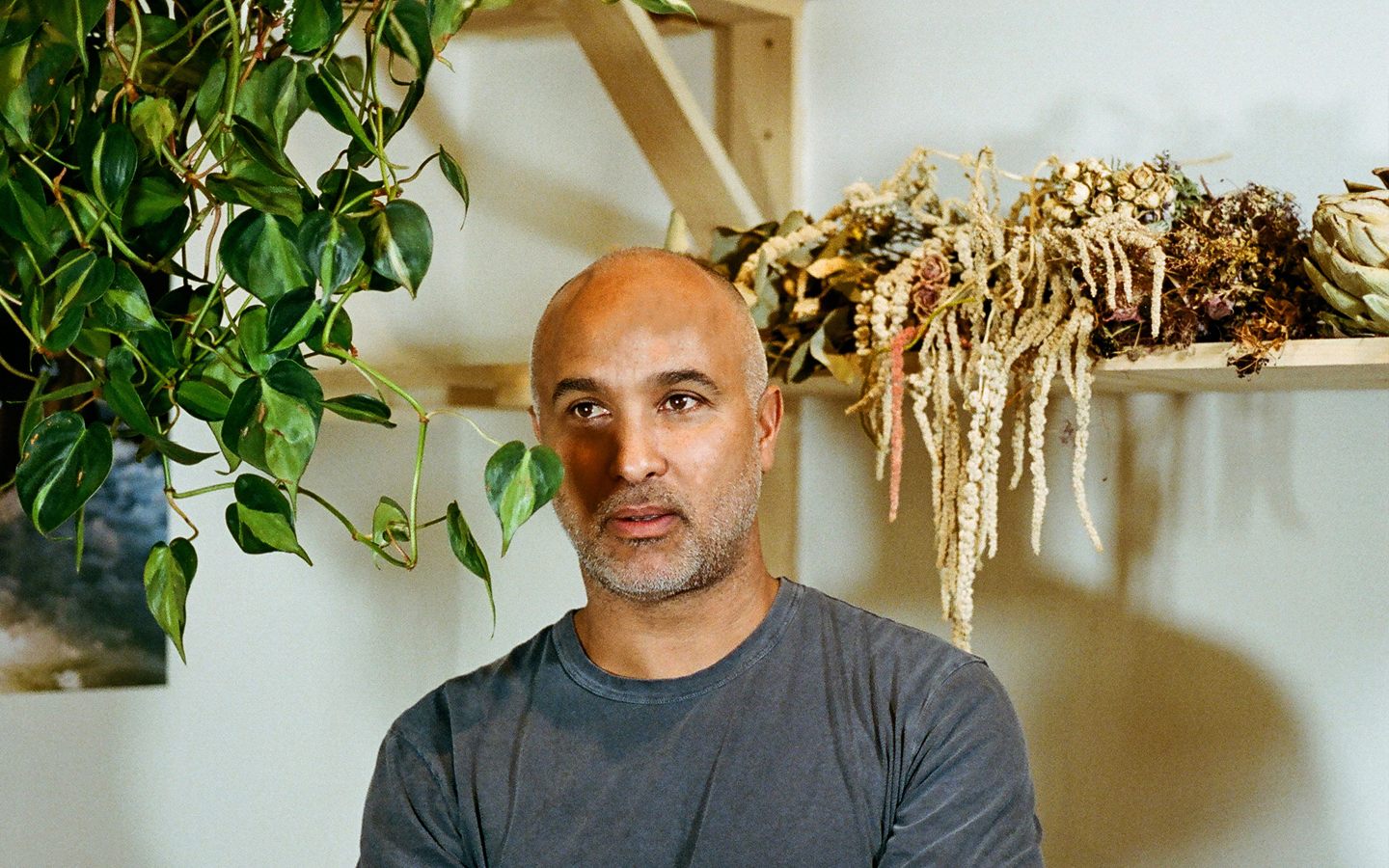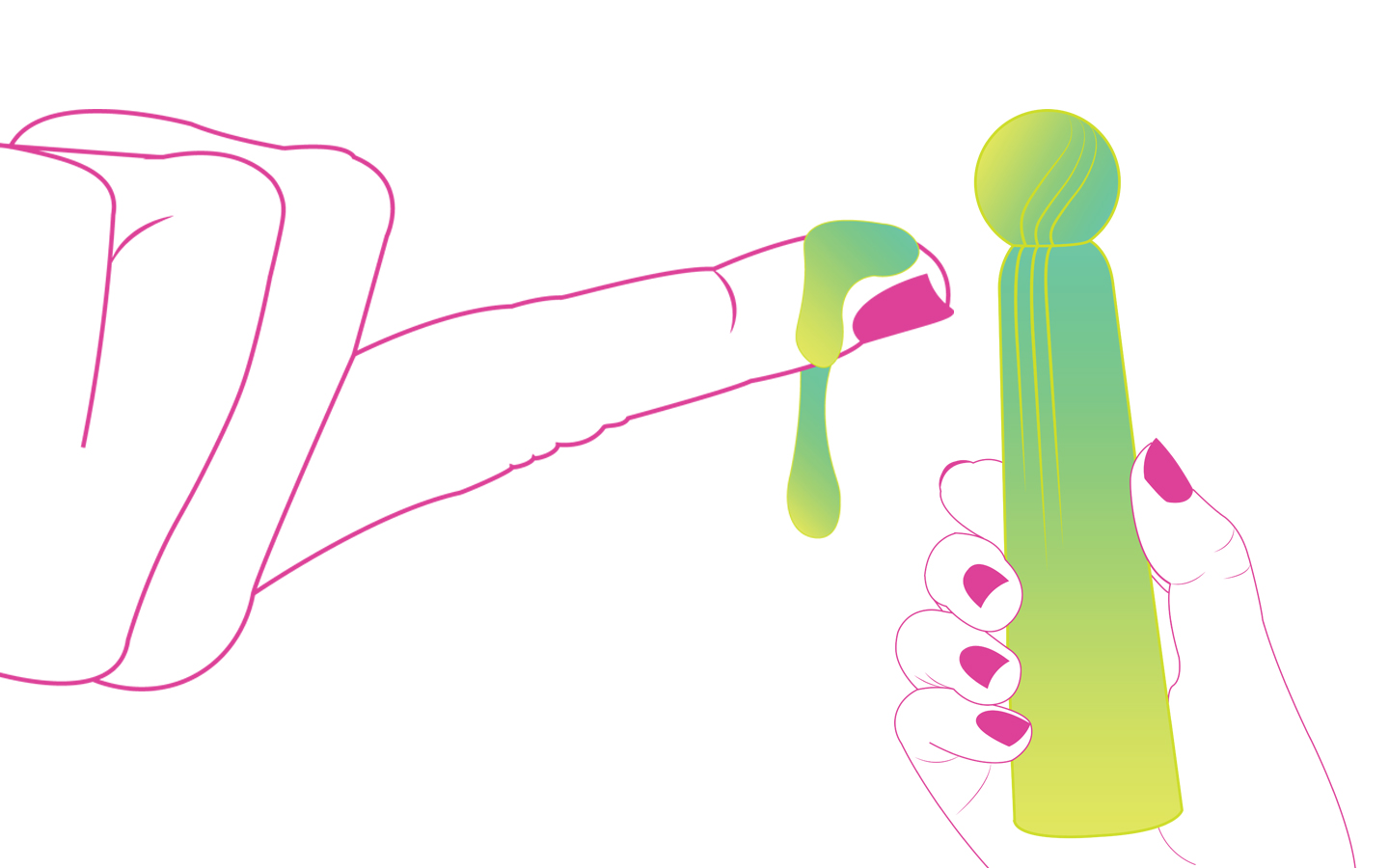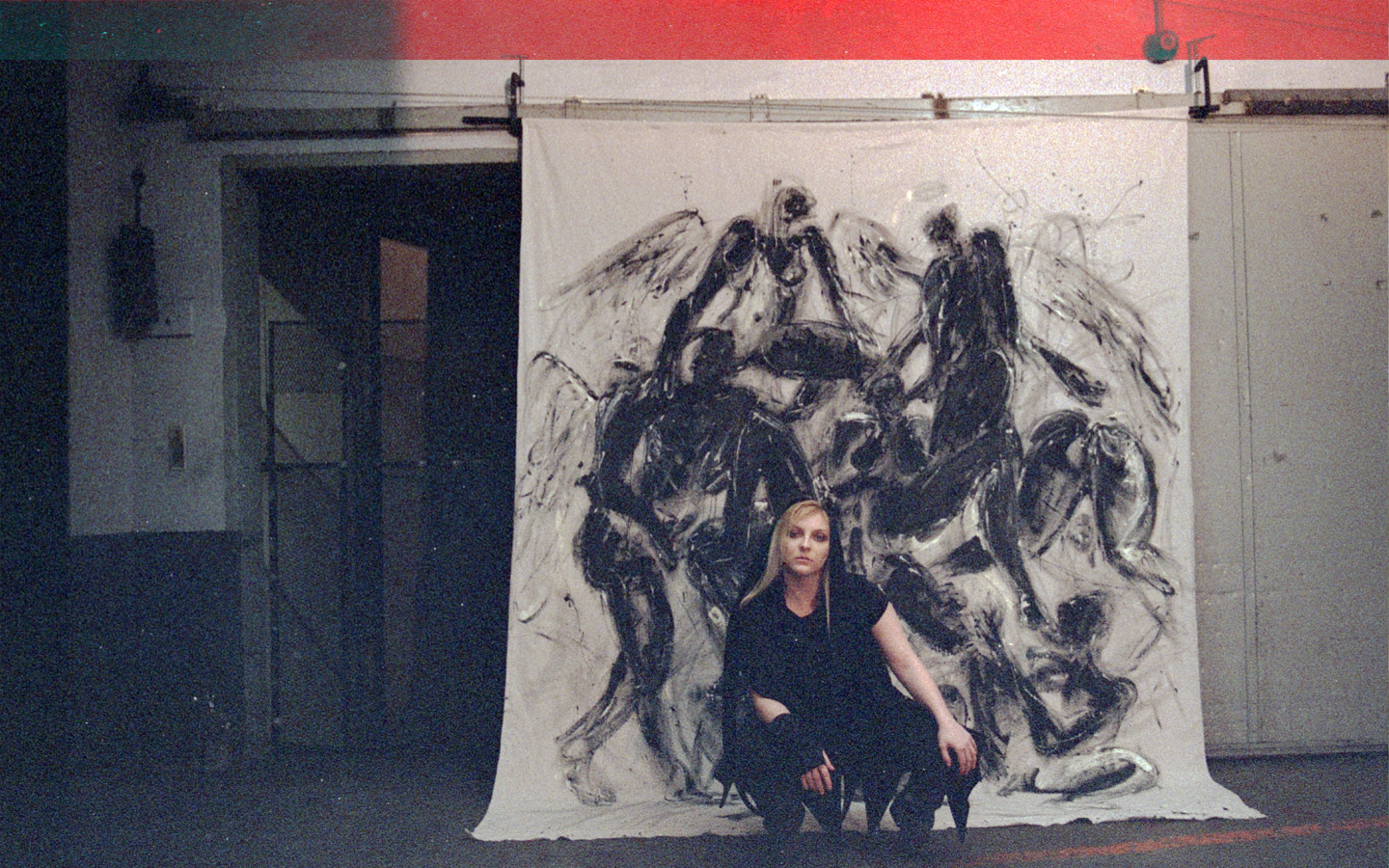
Theresa Baxter of Allmost Studio & Gallery
TEXT VANESSA DE HORSEY
VISUAL JON PHAM
Human thought is often swimming with ideas, fantasies, and dreams. In the United States, these thoughts are results of the American Dream: a promise of future, a beacon of unlimited potential, a necessity of self-fulfillment and individual triumph. These theoretical successes hinge on great ideas, courageous risks, willpower, and personal strength.
But the American Dream is really a pipe dream. While every so often the myth is proven possible, in the grand reality it is abundantly clear that this ‘option’ is not extended to every American. In a more granular understanding, success is impossible to achieve alone, and massive success is rarely achieved without substantial finances, power, influence, or some combination of the three. Still, most Americans remain wedded to this fallacy, as it provides unending hope for an ideal life. Most of our dreams thus exist as stopgaps, telling us that regardless of our circumstances, misgivings, and unhappiness, we have the power to change our course at any given moment.
In most situations, the creative power, drive, desire, and work get so far as to almost become real. Sometimes we give life to an idea—scrawled in a notebook, whispered in the ear of a trusted ally, allowed to exist for a moment as if it could truly be. These ideas are caterpillars waiting to evolve, with visions of their bright futures as a butterflies swelling with optimism.
Immediately after, a horde of emotions arrive like the grim reaper. The idea finds itself receiving passionate, poisonous kisses of death: worthless, impossible, pointless, unrealistic, waste of time, fated to fail. As we absorb these fears, the dream enters a state of eternal chrysalis—the interim period where the caterpillar metamorphosizes into a butterfly.
Our theoretical freedom now acts as chains. We retreat to working long hours in unfulfilling jobs; perhaps we take up a hobby alleviate our creative anguish. Meanwhile, our true passions get neatly folded and placed in abandoned boxes, fated to the back of our closets. Yet as these dreams and ideas gather dust, their existence allows us to believe that we remain in control of our future, our destiny, our potential.
As such, the caterpillar-dream remains in its cocoon, safe, sealed from the external world—eventually fossilized. The idea never again sees the light of day. Inevitably, we see a butterfly that looks exactly like the one we once imagined: proof that the idea was good, viable, fulfilling, accepted. We wonder why we allowed our own version to remain static, why we didn’t give it the oxygen, nutrients, care, and love that it deserved. We become frustrated—an opportunity squandered—forgetting about the fears and doubts that paralyzed us in the first place.
For centuries, we’ve celebrated butterflies with positive associations and symbolism. The soul, transformation, resurrection, endurance, the struggle of becoming a better version of oneself. On the rare occasion when a butterfly flutters by and lands on a finger, we feel blessed by good luck.
We tend to appreciate butterflies, their delicate grace, their beauty and apparent effortlessness. Still, the process of evolution is a painful one; the caterpillar must digest itself in order to rebuild its new body, all within an incredibly fragile structure that is easily destroyed. If the caterpillar manages to withstand the metamorphosis and emerge as a butterfly, it is unable to see its own wings—perhaps unaware of the enormous feat signified by its existence.
Allmost Studio & Gallery, tucked into blocks of warehouses on South La Brea, is one of those butterfly-ideas. Easy to miss if you aren’t paying attention, impossible to ignore once you find it. A place we are lucky exists and are thankful has successfully evolved.
Allmost stands as a garden of creative delights that lives to nurture its members. Within its walls are room for growth, for experimentation; artists cross-pollinating ideas as they work alongside each other; workshops provided to enrich the creative spirit, offering artistic, emotional, and logistical skills. The space itself hosts private studios for artists and creatives, as well as an airy co-working area that stretches through the center of the former warehouse.
I sit with founder Theresa Baxter in the common space on the evening of Easter Sunday. The studio is quiet, closed for the holiday, and lit by multiple warm, dim lamps and candles. Theresa offers me water, and I accept an ornate, lavender-colored stemmed glass. Her purplish-pink hair and pink silk shirt match not only the glass, but many of the artifacts peppered throughout the space. Allmost is full of plants, Seussian colors, and whimsical affects—tchotchkes, a golden bust, a luminous skylight, a pale pink velvet armchair, breezy white curtains, tufted stools, a large watermelon-pink door.
Theresa’s own visual synchronicity, paired with her calmly effervescent demeanor, brightly mirrors the environment. An inscription on the wall reads “To be perfectly Frank,” an ode to her grandfather, who loves bad puns as much as Theresa does. As an artist who loves florid decoration, as well as miniatures and functionless trinkets, I feel very much at home. To understand the evolution of a space so special, so unprecedented, I ask Theresa to provide excruciating detail about Allmost—from its conception to its reality, and how it survived its transformation.
@allmost.us
allmost.us
– ON PASSION –
i’ve always drawn for myself. i was a weird kid; we moved a lot, so i didn’t have a lot of consistent friends. i would draw a lot, and I would always draw interiors (okay, I would draw cats and Victorian costumes also). i’ve always been passionate about space, but i didn’t think that it would come into play in my actual career.
– ON DOUBT –
i went to calarts, only for a semester, and that was a stressful and discouraging experience. i wasn’t ready to only make art and not do anything else. but what stuck with my was that you get your own studio from day one. being in that studio was so cool, and everyone else is in their studios doing different things. it was intimidating but always very inspiring; i was in awe of the people who were working on other things.
as an artist, I took a hiatus for a long time—I went to college, tried to be a reasonable person. i did get very sidetracked from my creative aspirations; i worked in wealth management for awhile.
– ON OBSESSION –
in 2013, when i started getting back into making my own art, i was looking for a space. i couldn’t find anything, which was shocking to me because i feel like LA is the new fresh underground art city. so i got the idea that since it didn’t exist, i should make my own.
a lot of ideas implant themselves. my mind is very obsessive, so if I get an idea and I like that idea too much, i’ll obsess over it until i have to do it. i had no business starting a business, but it was a daydream that kept building.
– ON OPPORTUNITY –
i was floating between different jobs and trying to figure out what my direction was. my grandpa mentioned that if i wanted to start a business he would give me a small loan. my grandpa is a little intimidating, and he’s someone i really look up to. he’s completely self-made and grew up with nothing; he’s always been an entrepreneur.
– ON MAKING IT REAL –
i met isaac, my partner, in january of 2014, and i’d tell him about my very nebulous creative space that could house all of the different artists and creative people that we knew. he honestly changed how i think about my goals. i would say something to him like, ‘this would be so fun!’ and he’d be like ‘okay, what’s the first step?’ i’d never met anybody who thought things were possible that way.
isaac was really the person who was like, ‘you have an opportunity here, you should take it. you have this idea.’ he made me an entrepreneur. i also get very fixated on the details and the small things—like, ‘think about all the plants!’—but that’s not how you build a business.
other parts of it were so foreign to me and so terrifying, frankly, that having someone to be the logical backbone and the person who would say, ‘you have an idea, so what? are we going to make this a real thing?’ was major. he coached me through making a business plan, running any kind of numbers—and also a lot of the emotional things. you know, you question yourself constantly and are like, ‘who the fuck do i think i am?’
– ON NOT REALLY KNOWING WHAT THE FUCK YOU’RE DOING –
i started this business when i was twenty-three, and you don’t know things when you’re twenty-three—you just don’t! but that’s also why i did it. i was really naïve and excited about it, and didn’t know what all of the pitfalls were going to be, so i forged ahead.
i didn’t know how to manage money or think about delegating tasks, working with other people, hiring independent contractors. all of those things were out of my depth. i’ve put a lot of pressure on myself, but also, starting a business is really fucking hard! it doesn’t normally work out for the first two years, and you have to be okay for those two years. i wasn’t ready, but i learned in the process. there were definitely a lot of months where i didn’t know how we would pay our basic bills, and every part of it was a struggle. but having a good partner, and having my grandpa to talk to about things, and having people be passionate about the space, and building that community were the only reasons that i wasn’t just like, ‘fuck this.’
– ON MAKING THINGS HAPPEN –
attracting people to this space was another journey where i didn’t know what the fuck i was doing. i also had help. i learned that word of mouth is everything. everyone who’s in our space is really, really great—i’ve had very few people who haven’t contributed to the space in a really amazing way, and i think that has a lot to do with most of our marketing being word of mouth. of course you have to put it out there onto the internet too, facebook groups are super key in LA, social networking is important for sure. but the biggest thing has been the people in our studio who are invested and who bring in their friends and their connections.
– ON DOING THINGS YOURSELF –
a tenet was to be a d.i.y. space where, from concept through execution, every part is something that you can do yourself. it was a raw warehouse when we moved in. i was the one who went to the city and pulled everything. isaac’s background is in architecture; he designed the layout and our friend john helped us draw up the plans (he’s also an architect), and then we hired a really awesome collective from frogtown to build out these panels [that separate the studios]. all of the materials are affordable that we could source here in LA. all of the furniture is pretty much upcycled or we built it ourselves. those elements were all important to me and part of making a space that encourages people to do things themselves.
– ON NOT DOING THINGS YOURSELF –
there’s a lot of pressure that if you can be doing something, you should be doing something really amazing. that creates so much pressure on the individual. and i don’t believe that you can do anything great by yourself. you need a network. it’s so important to have people who you can talk to, who understand what you’re dealing with, and also what you’re feeling about things. maybe not everyone is as driven by feelings as i am, but it’s a lot—it really shakes your sense of identity and makes you question everything.
– ON PARTNERSHIP –
isaac is very involved, but we joke that he’s the phantom of the studio. i definitely do most of the outward facing things—i market the studios, i rent the studios, i deal with all of the management, i work with our membership coordinator, i do the workshops with her—but isaac will help with contracts, money things, and sometimes he wants to do crazy events so we’ll do those things too. he’s kind of the secret partner.
– ON RESPONDING TO NEEDS –
Allmost is geared at artists and creatives. i really believe in creative entrepreneurship—in my own life that’s the only way i’ve built anything. the people i really see making their own careers and succeeding are creatives, but i think the space doesn’t exist for people like that. we really wanted to provide something that’s in-between: something that’s cozy but can be a lot of different things, that’s presentable for meetings and you can also be messy in.
there are seven private studios, and we really leave it up to tenants to make it their own space. they can sublet it if they want, and if you have a studio you can use the shared space. we also have creative co-working memberships, which is different from a WeWork or a Neue House because we’re small, very boutique—but not in a bougie way. we’re going to start doing a screen printing-specific membership soon, which is exciting; we used to include it in our general membership but there needs to be some oversight now, so we’re responding to the need.
– ON CREATIVE SPACE –
we want creatives. we want people to plan their lifestyle photoshoots here. we have writers who just sit here and write. we have painters who will bring out their easels because the light is transcendent here during the day.
a studio isn’t a studio if there aren’t things happening, and it needs to inspire you and feel creative and feel like things are going on. so the people who rent studios and are actively here, who will find photoshoots or plan workshops with us or host a dinner party in the space, are making it feel like a home.
– ON SHIT YOU SHOULD KNOW –
the ethos behind the workshops is the same as what i said before, about wanting everything to be do-it-yourself. to ourselves we were calling the workshop series “shit you should know”—any creative or tangentially creative skill that we could price accessibly, that people could do at home without any materials aside from what we could provide, and that could fit within a certain timeframe.
last summer we did a workshop called “plant parenthood” that was just about how to take care of plants. we’ve done a lot of screen printing workshops, we did a pompom making workshop, a figure drawing workshop. we do some intention setting workshops around the new moon. melinda (who rents one of the studios) has hosted a lot of women’s workshops, talking about women’s issues—feelings and stuff. we’ve also done some social media, instagram, marketing workshops. bridgett, who does our membership management, is taking on the workshops and has a couple of fun ones planned. there’s an embroidery workshop, indigo dyeing is on the docket, a tea ceremony.
– ON FULFILLMENT –
i love when we work with people who are in the studio space and support them to teach what they know to other people. we have photographers, painters, an interior designer, a sculptor, writers, people who have their own arts non-profits, a prop designer. i get a lot of personal joy from watching people collaborate on things and build their own relationships and help each other. it happens informally all the time, but sometimes it’s good to be like, ‘you know how to do this thing, and we could all learn from it.’ actually, the one that was the most helpful for me was a workshop for financial planning for freelancing creatives, which is so hard.
– ON BALANCE –
i don’t know about balance. i’m working on balance. yeah it’s totally chill, i always have time for breakfast.
– ON IGNORING BALANCE –
i just started my second business with my partner chelsea hughes. she approached me last february about using our former gallery space downstairs for a sort of extended popup, co-retail thing. it was serendipitous timing and ended up really working out; we did that for about four months. we had also just wrapped our biggest show. i was exhausted. i was like ‘this was fun, but please never again!’
in trying to figure out if we were going to renew the lease here, chelsea, isaac, and i started looking at other buildings. i was really trying to walk away, if i’m being honest. we were thinking about how we could downsize and still keep the store as well as some studio space. we ultimately decided that this was the best building for the studio, and we still wanted to do the store, but we should separate them.
– ON REALLY IGNORING BALANCE –
so now i co-own an official business for the co-retail store. it’s called Allright, and it’s in silver lake. we sublet the commercial space to the vendors, but with curation, management—dealing with all of the stuff that nobody wants to do. i do the branding, chelsea does the in-person design, we manage the schedule and everything, but the vendors still have their own brand and their own stake in the space—so at its core, it’s a similar model to Allmost.
with Allright, we’re ironing out kinks, but the goal is to expand to other cities. hopefully within the next two years we’ll have a second location somewhere. that’s not really in line with my mission of not working as much, but we’ll see.
– ON STARTING A THIRD BUSINESS EVEN THOUGH YOU ALREADY DON’T HAVE TIME FOR BREAKFAST –
i also, as an illustrator, have started selling prints and tees online. in being part of the store, i learned from the people around me how to have a pretty sustainable online business, and i know that a lot of our other vendors have had similar experiences. a lot of it is about providing the infrastructure for community and for learning from other creatives.
– ON TAKING THINGS PERSONALLY –
the store is interesting because since it’s a collective, people will come to us with ideas, concerns—it’s a lot more personality-centric. i feel like, i don’t wanna toot my own horn too much, but i have much better communication skills than i used to, and that’s a huge thing—and i’m always learning about how i can be better.
it was really hard for me to not take things personally in the beginning with Allright, because you really put everything into it. it’s your baby, you care about it, and someone will be like ‘here’s a helpful suggestion,’ and you’re like, ‘oww… my feelings!’
i feel like i’ve developed a thicker skin, which is great. i understand that when they have an issue with something or they have a suggestion, it matters to them like it’s their baby—because it is.
– ON BALANCE (SECOND ATTEMPT) –
i’m trying to make more time to not work. i’m trying to delegate, which is really exciting. i’m really trying to not always be focusing on what’s next and instead focus on what is working and building out the things that are already here.
now that we’re full and we have a lot of inquiries and a growing wait list, i want to create a resource for artists who are looking for space, some kind of directory or something. because i’m not ready to expand right now, but the demand is there.
– ON GIVING UP CONTROL –
it’s really, really hard. you have to find the right people, but everyone who i work with now is really amazing and passionate about their role in the space and what their goals are personally. it gets easier when people show up and do a) what i want them to do, and b) come up with things that i never would have come up with. so i’m letting go, or i’m trying to learn to let go of being a control freak and nderstand that i don’t know what’s best a lot of the time.
– ON EVOLUTION –
we’ve gotten here in a roundabout way. things shift in our own personal lives; when i started this business i had a different friend group and personal community. i definitely created the space with some specific people in mind, but taking on something like this changes your focus. involving friendships in a business changes those friendships and your business. so that community and those relationships have all shifted—that was a hard lesson. but i think ultimately it was for the best, and then made space for the real intention.
– ON AVOIDING TOMFOOLERY –
i always just want to tell people to get their contracts right. it’s not fun advice, but it’s necessary. any business thing you do, you should have a clear contract—and negotiating a contract with someone before you work with them can be really empowering. you both know what the parameters are, there’s no room for tomfoolery, and it doesn’t get in the way of your relationship in other ways.
– ON PULLING THE PLUG –
i also think it’s fine to quit. just because you started something doesn’t mean that it has to work. sometimes you’ll start something and realize that it doesn’t work, but you got a good education. knowing when to back down is key.
– ON NOT BEING AN ASSHOLE –
a lot of the people in our circles are those who have started their own creative business. i’ve also met a lot of people who are aligned with my path. when i started, i didn’t know anyone who was in the same boat, and that ruptured a lot of my relationships. because, yeah, i was twenty-three, and i acted like a selfish asshole because i was freaked out…which was not tight! but also, nobody could relate to me. now, in being part of this space, i’ve learned—hopefully—not to be an asshole. it’s been really humbling.
– ON WHETHER IT’S WORTH IT –
honestly, even at the end of last year, you could look at things financially on paper and measure it against how you know you’ve felt over the past two years, and it’s really hard to say whether this is the right thing. but i think having the opportunity given to me by my grandpa has kept me going—and also the people who are excited about the space, the people who are here, the creative projects i see happening here.
– ON IGNORING STRESS –
after a certain point, you can’t be stressed about things anymore. you can’t be worried about it. you have to just take a leap and then appreciate what’s going to happen. so if i’ve been fine not knowing how i’d pay my bills for two years, this will be fine. and then it gets exciting.
– ON THE DREAM BECOMING REAL –
when i walk in and there’s a photoshoot, and a meeting, and someone is in their studio using an antique letterpress, and someone else is painting—this is the dream, this is the thing. oftentimes, at least in the first two and a half years, those are things i don’t think i let myself appreciate—but now i’m seeing that what we wanted exists.




